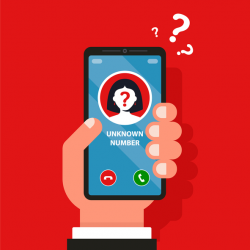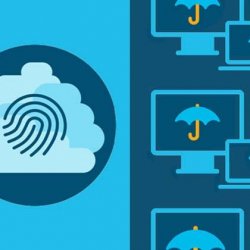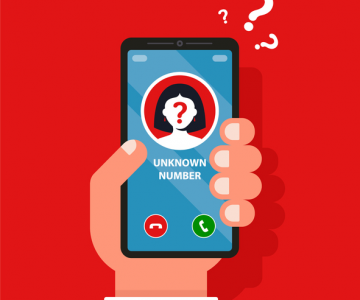voice phishing attempts continue to target remote workforce


Remote Workers Are Not Protected From Phishing And Vishing
"There often tends to be a great deal of pretext in these discussions around the interactions and also work-from-home applications that business are making use of. Yet ultimately, they inform the employee they have to fix their VPN and can they please log right into this web site." The domains made use of for these web pages commonly invoke the firm's name, followed or preceded by hyphenated terms such as "vpn," "ticket," "worker," or "portal." The phishing sites likewise may include working web links to the company's various other inner on-line sources to make the system seem even more credible if a target starts hovering over web links on the web page.
Time is essential in these assaults due to the fact that numerous firms that count on VPNs for remote employee access likewise call for employees to supply some kind of multi-factor verification in enhancement to a username and password such as a single numeric code produced by a mobile app or text message.
But these vishers can easily sidestep that layer of protection, because their phishing web pages simply request the one-time code too. Allen said it matters little to the attackers if the initial couple of social design attempts fail. Many targeted staff members are working from residence or can be gotten to on a smart phone.
Cybercriminals Target Remote Workers During Pandemic
As well as with each passing effort, the phishers can obtain crucial information from employees about the target's operations, such as company-specific terminology utilized to define its numerous on the internet assets, or its business hierarchy. Therefore, each unsuccessful effort in fact instructs the fraudsters just how to improve their social design technique with the next mark within the targeted organization, Nixon said.
All of the safety scientists spoke with for this story stated the phishing gang is pseudonymously registering their domain names at simply a handful of domain name registrars that accept bitcoin, and also that the scoundrels generally produce simply one domain name per registrar account. "They'll do this since this way if one domain gets shed or removed, they will not shed the rest of their domain names," Allen claimed.
And also when the attack or telephone call is total, they disable the internet site tied to the domain name. This is key because numerous domain name registrars will just reply to exterior demands to remove a phishing site if the website is online at the time of the misuse complaint. This need can put on hold efforts by companies like ZeroFOX that focus on identifying newly-registered phishing domains before they can be used for fraud.
Cyber Security For Remote Workers
And also it's extremely irritating since if you file an abuse ticket with the registrar as well as claim, 'Please take this domain away because we're one hundred percent certain this site is going to be utilized for badness,' they will not do that if they don't see an active assault going on. They'll react that according to their plans, the domain has to be an online phishing website for them to take it down.
Both Nixon and Allen claimed the things of these phishing strikes seems to be to access to as many inner company tools as possible, and also to make use of those tools to take control over electronic assets that can quickly be become cash. Mainly, that includes any type of social media sites and e-mail accounts, in addition to linked economic instruments such as savings account and also any type of cryptocurrencies.
Traditionally, the goal of these attacks has actually been gaining control over highly-prized social networks accounts, which can occasionally bring hundreds of bucks when re-selled in the cybercrime underground. Yet this activity slowly has actually developed toward much more direct as well as aggressive monetization of such accessibility. On July 15, a variety of prominent accounts were used to tweet out a bitcoin fraud that earned even more than $100,000 in a couple of hours.
Voice Phishing Attempts Continue To Target Remote Workforce
Nixon claimed it's unclear whether https://mswindowsoop579.wordpress.com/2020/12/30/vishing-scam-targets-remote-workers/ any of individuals associated with the Twitter concession are connected with this vishing gang, but she noted that the group revealed no signs of slacking off after government authorities charged numerous individuals with taking part in the Twitter hack. "A great deal of people simply shut their minds off when they hear the most up to date huge hack had not been done by cyberpunks in North Korea or Russia however instead some young adults in the USA," Nixon stated.
However the type of individuals responsible for these voice phishing assaults have actually currently been doing this for several years. As well as sadly, they've gotten quite advanced, as well as their functional safety is a lot better now. While it might appear amateurish or nearsighted for opponents that access to a Fortune 100 company's inner systems to focus mainly on swiping bitcoin and social media sites accounts, that access when established can be re-used and re-sold to others in a variety of means.
This stuff can really quickly branch out to various other functions for hacking. For instance, Allen claimed he suspects that as soon as within a target firm's VPN, the attackers might attempt to add a brand-new mobile device or phone number to the phished employee's account as a way to generate additional single codes for future accessibility by the phishers themselves or any person else happy to pay for that access.
Ensuring Security Across A Remote Workforce
"What we see currently is this team is really excellent on the invasion component, and actually weak on the cashout part," Nixon stated. However they are discovering exactly how to make best use of the gains from their activities.
Some firms also periodically send examination phishing messages to their staff members to assess their recognition levels, and after that call for staff members that miss the mark to undertake added training. Such safety measures, while important as well as possibly handy, may do little to battle these phone-based phishing assaults that tend to target brand-new workers.






Ingen kommentarer endnu